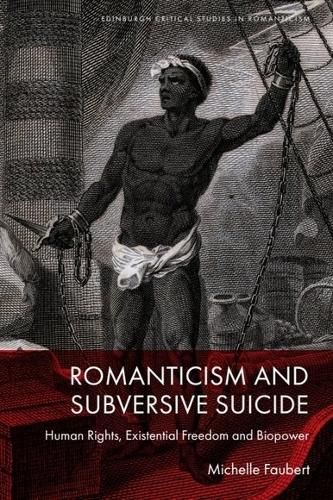Readings Newsletter
Become a Readings Member to make your shopping experience even easier.
Sign in or sign up for free!
You’re not far away from qualifying for FREE standard shipping within Australia
You’ve qualified for FREE standard shipping within Australia
The cart is loading…






Romanticism and Subversive Suicide: Human Rights, Existential Freedom and Biopower traces the roots and expression of the literary theme of subversive suicide in the British Romantic era through key texts from different genres, from novels to letters, and poems to plays. A range of commentaries on suicide including newspaper reports, coroners' inquests, religious tracts, sermons, medical studies, and legal texts reveals the existence of a distinctly Romantic-era suicide debate, the fervour of which reflects the rise of biopower, as defined by Michel Foucault, to which suicide was the ultimate threat. This debate features a spirited defence of Enlightenment ideas proclaiming the Western liberal subject to be existentially free, as well as the broad cultural influence of the British slave trade, which shaped both national awareness of what it meant to be a subject and the definition of the human at the time
$9.00 standard shipping within Australia
FREE standard shipping within Australia for orders over $100.00
Express & International shipping calculated at checkout
Romanticism and Subversive Suicide: Human Rights, Existential Freedom and Biopower traces the roots and expression of the literary theme of subversive suicide in the British Romantic era through key texts from different genres, from novels to letters, and poems to plays. A range of commentaries on suicide including newspaper reports, coroners' inquests, religious tracts, sermons, medical studies, and legal texts reveals the existence of a distinctly Romantic-era suicide debate, the fervour of which reflects the rise of biopower, as defined by Michel Foucault, to which suicide was the ultimate threat. This debate features a spirited defence of Enlightenment ideas proclaiming the Western liberal subject to be existentially free, as well as the broad cultural influence of the British slave trade, which shaped both national awareness of what it meant to be a subject and the definition of the human at the time